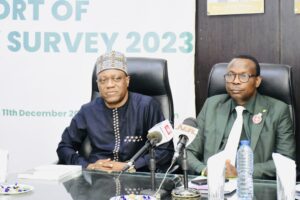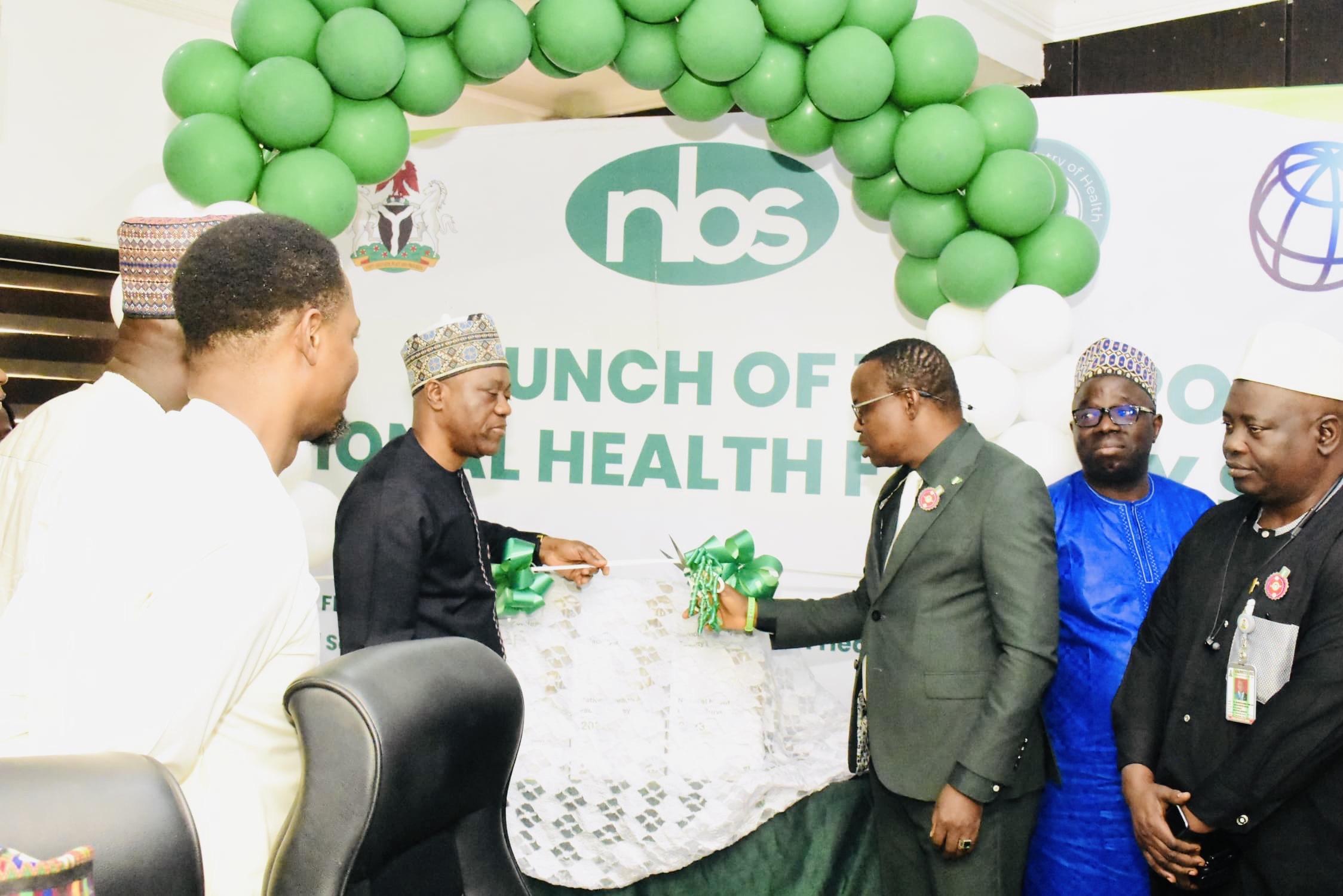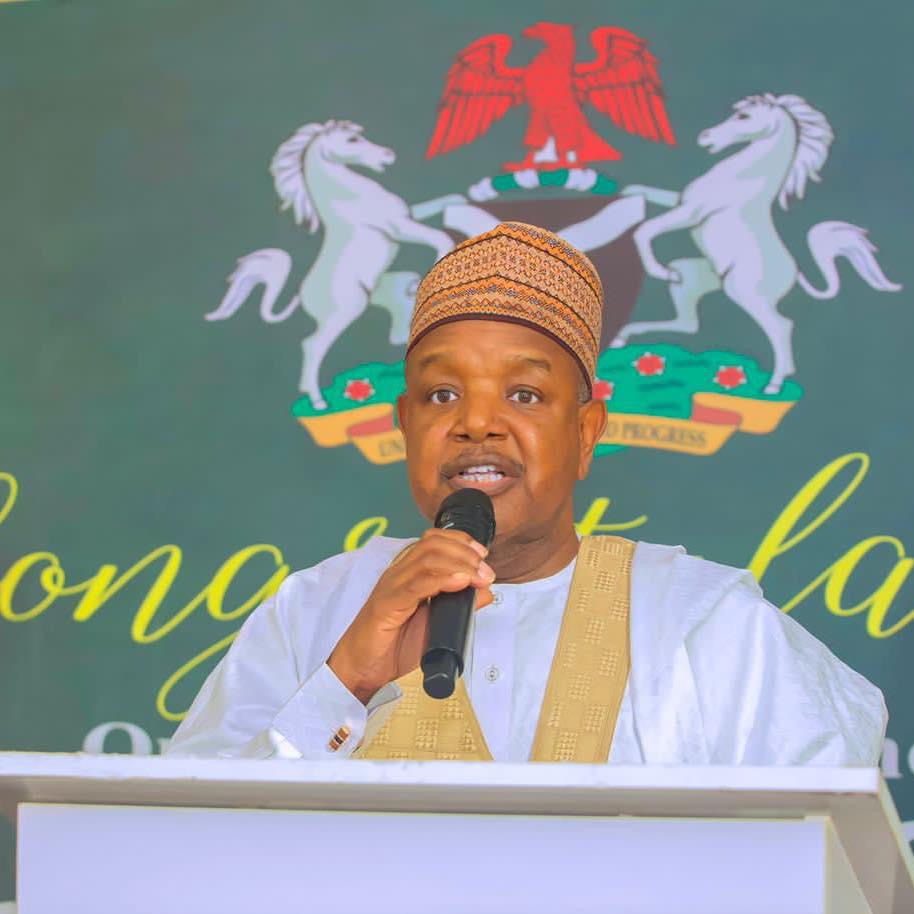FG pledges to strengthen healthcare system
By Nana Musa
The Federal Government has reaffirmed its commitment to improving Nigeria’s healthcare system.
Mr Adeyemi Adeniran, Chief Executive Officer of the National Bureau of Statistics (NBS), made this statement on Wednesday during the launch of the National Health Facility Survey (NHFS) Report 2023 in Abuja.
Adeniran stated that the NHFS 2023 builds on the 2016 and 2019 surveys, using improved tools to assess service availability and health facilities’ readiness to deliver essential services.
“This latest report includes several improvements, particularly in data collection methods from selected health facilities nationwide.
“These enhancements provide a comprehensive framework for assessing service availability and evaluating the readiness of facilities to deliver effective healthcare,” Adeniran said.
He noted the inclusion of Service Delivery Indicators (SDIs) developed in collaboration with the World Bank and the African Economic Research Consortium (AERC), which focus on primary healthcare delivery.
According to Adeniran, the SDIs promote accountability, enhance governance, and enable targeted interventions for better healthcare outcomes.
He acknowledged the persistent challenges in Nigeria’s healthcare system, including inadequate funding, outdated infrastructure, and a shortage of skilled personnel.
“Many Nigerians still face difficulties accessing quality healthcare, particularly in rural areas. Despite various reforms and investments by the government and development partners, significant challenges remain,” Adeniran said.
He listed issues such as infant mortality rates of 63 per 1,000 live births (as per the latest National Health and Demographic Survey) and widespread shortages of essential medicines.
“These ongoing issues hinder the provision of equitable healthcare to all Nigerians, especially in underserved areas,” he added.
Adeniran also noted the growing migration of healthcare professionals to countries such as the United States and the United Kingdom in pursuit of better salaries, working conditions, and career prospects.
This trend, he said, has further strained the healthcare system by exacerbating the shortage of skilled workers.
He emphasised the importance of the NHFS report in addressing these challenges, describing it as an essential resource for policymakers and healthcare administrators.
“The data in this report provides an insightful analysis of the current state of health facilities and offers evidence-based recommendations for informed decision-making.
“By leveraging this information, we can implement targeted interventions to address urgent issues, especially at the primary healthcare level,” he stated.
 Prof. Muhammad Pate, Coordinating Minister of the Federal Ministry of Health and Social Welfare, described the event as a pivotal moment for the country’s health sector.
Prof. Muhammad Pate, Coordinating Minister of the Federal Ministry of Health and Social Welfare, described the event as a pivotal moment for the country’s health sector.
Represented by the Minister of State, Dr Iziaq Salako, Pate highlighted the survey’s significance, stating that the findings offer invaluable insights into the preparedness and capacity of health facilities to deliver essential services.
“This survey used the WHO’s Service Availability and Readiness Assessment (SARA) tool and the World Bank’s SDI to evaluate the performance of over 3,000 public health facilities nationwide,” Pate said.
He noted that the findings shine a light on the strengths and gaps in Nigeria’s healthcare system, particularly in primary and secondary facilities, which serve the majority of the population.
“These insights are crucial for shaping policies and interventions that will improve healthcare outcomes for all Nigerians,” Pate added.
The report, he said, serves as a guide for future investments and targeted efforts to address service delivery gaps, improve healthcare infrastructure, and enhance the overall quality of care.
“By using this data strategically, we can focus our resources on areas where they are most needed, ensuring better healthcare services for all Nigerians, regardless of location or socio-economic status,” he concluded. (NAN) (www.nannews.ng)
Edited by Kadiri Abdulrahman






